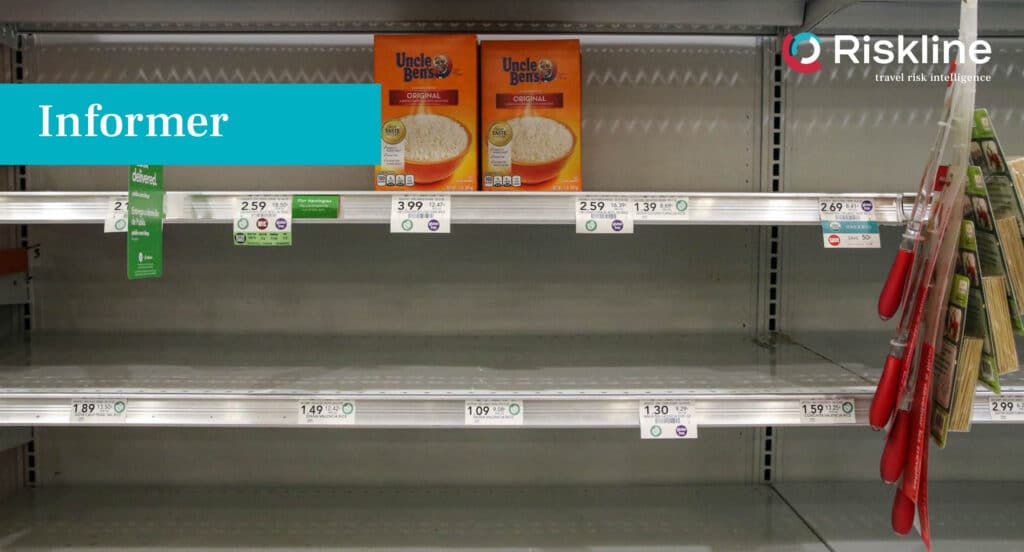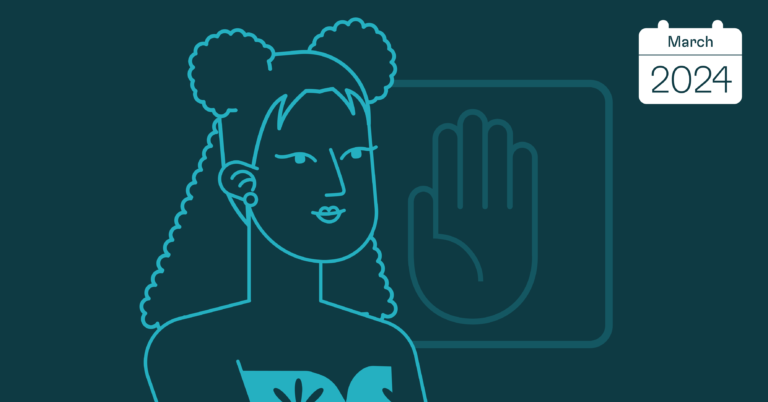After an initial run on the shelves that emptied stores of basic goods across parts of the US in March and April, supply chains have stabilized and purchasing limits imposed. The collapse of food production is unlikely on a national, or even state, level, but the system is under strain due to COVID-19. Bottlenecks will continue to exist as demand remains erratic, forcing some producers to operate at a loss while others thrive from signing up new clients.
The most significant bottleneck exists where the people who pick, process and pack food both work and live in close quarters where social distancing is not possible. Absent major intervention by employers, landlords and state and federal regulators, sustained community spread will continue to radiate outwards from production and processing centres into the communities surrounding them. There is not enough lead time to expand mechanization, so plants must either slow production to limit the number of employees on the floor or risk closing for weeks on end if infections become unmanageable, as they have become in dozens of facilities nationwide. Shortages of seasonal workers due to travel and immigration restrictions will also affect pricing and availability of crops until a vaccine is developed and these controls can be lifted.
Producers whose employees are able to practice social distancing and sanitary measures are less likely to pass on shortages to the buyer. However, they are still subject to market pressure caused by uncertainty and radically changed consumer behavior. The food supply chain for grocery stores is distinct from other clients. Crossover is limited. What is sold in bulk for use in school, hotel or restaurant kitchens cannot be placed on a supermarket shelf unless the producer changes how they package it. Eateries that already sell fresh and non-perishable goods can continue to offset losses by selling groceries. Eateries that cannot, must reopen or stay closed.
Most restaurants and bars, like other businesses, had to temporarily close under states’ stay-at-home orders. Now they have been permitted to reopen for customers, who have accumulated disposable income during the shutdown and are eager for a return to normalcy through the social activities of dining and drinking. However, due to the uncertainty caused by the pandemic, producers and purchasers will continue to face difficult choices until a vaccination program is implemented.
As infections increase across the United States (US) over the summer, particularly in southern and western states, many restaurants will experience an unsustainable cycle of closures and reopenings. Owners will be forced to close for up to weeks at a time due to the reimposition of restrictions and/or their workers getting sick. Consumer spending will fluctuate wildly even without shutdowns because bad headlines will keep members of the public indoors. Even in northern states that entered lockdown first and exited later, expanded reopening plans for restaurants and bars have been paused indefinitely in light of the surge of cases elsewhere.
Producers and their distribution networks will continue to face the same issues of wastage, uncertainty and competition for limited freight capacity that caused problems when the pandemic first hit. A limited pool of truck drivers and physical infrastructure to move these goods around will also continue to cause disruptions, especially if the impact of the pandemic worsens over the fall and winter with the onset of colder temperatures and the annual flu season, straining medical capacity once more to the point lockdowns are reimposed.
In order to maintain the food supply chain, government intervention in support of producers and consumers will have to continue. Further loans will have to be extended to restaurants so they are not forced to choose between risking a botched reopening or closing their doors for good. Laws must be adjusted to account for new legal liability and unemployment scenarios facing businesses owners. Direct purchases from farmers to maintain food banks must be prepared in advance of the fall and winter months. Job losses have made more households dependent on welfare, creating long lines at food banks, which cannot rely on community donations for sanitary reasons and face major funding shortfalls. And adequate sanitary measures must be implemented for workers harvesting, processing, transporting and preparing food.
Paul Mutter is a US-based political and security risk analyst covering Middle East and North Africa.















